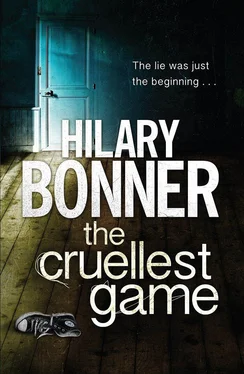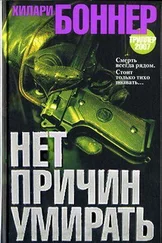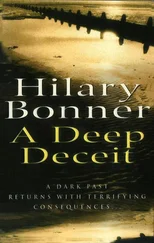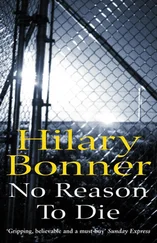Nothing that Robert had said had given any indication he was likely to confess to killing his wife. Indeed, he had still been half protesting her innocence of any wrongdoing and insistent that she was not involved in Robbie’s death.
‘So what happened?’ I asked. ‘Everybody seemed so sure Brenda Anderton’s death was an accident.’
‘That was when we had no reason to believe anyone may have wanted to kill her,’ said Jarvis. ‘The kind of woman she appeared to be, a married mother going about her business, did not suggest there was anything suspicious about her death. So the investigation proceeded on that basis. But after what you told us, about your husband’s double life and Brenda Anderton’s stalking of you and your son, we had the car re-examined by forensics. And we called in your husband for interview and subsequently arrested and charged him.’
‘Has he admitted it then?’ I asked.
‘Look, I can’t go into details,’ he said. ‘But let’s just say we have found evidence to indicate that this was no accident. We know the car had been tampered with, and in such a way that it could only have been done by someone with expert knowledge. And we already know from you that he is an accomplished motor mechanic.’
It had all happened so fast. I had been aware of the effect of what I had earlier told the police. I had seen the reactions of Jarvis and Price. Yet I was shocked rigid. My mouth felt dry. I had no words.
The months leading up to Robert’s trial at Exeter Crown Court in March the following year passed in a kind of limbo. I was barely able to even think about my shattered life, let alone attempt to rebuild it.
My car and all the rest of my personal possessions, including everything that had been detained at Heavitree Road Police Station, were returned to me. So was the hard drive of Robbie’s Mac, no longer any good to me, and his phone, which I eagerly checked out.
There were records of the call Sue Shaw had told me she’d made to Robbie on the day he died, and of several attempts he’d made to call her back. He’d also sent her a text — We must talk — making no specific reference to the immense news Sue had given him. If he had mentioned her pregnancy, presumably the police would have picked up on it. Even taking into account the lack of any real interest that they’d displayed at the time, I thought wryly.
I also heard from DS Jarvis that DNA extracted from the sample of excrement removed from Highrise matched that of Brenda Anderton.
‘We can’t try a dead woman,’ he said. ‘I just thought you’d like to know.’
I thanked him. But I’d known that anyway, of course.
I pretty much locked myself away inside Highrise. Actually, I didn’t have a lot of choice. The financial problems I had half expected kicked in just before Christmas, a couple of weeks after Robert’s arrest.
The first indication came when I tried to pay for one of my regular Waitrose shops with my American Express card and it was declined. My Barclaycard was also declined. But my Barclays Connect card, my debit card linked to the joint account in Robert’s and my name, was, however, and much to my relief, accepted.
I had gone into denial about my finances — I’d known full well that I should make enquiries into my financial situation and I had done nothing about it. In the distant-seeming days when all had apparently been well with my family, I had known little or nothing about our financial affairs except that our household bills were paid by direct debit or standing order from our Barclays joint account. The statements for this account arrived at Highrise regularly and I sometimes gave them a cursory glance, if Robert was not at home, before putting them into a drawer of the desk in the study to await his return.
I knew that Robert had another Barclays account solely in his name into which his Amaco salary was paid. Robbie’s school fees and other larger or irregular expenditures, like the purchase of a new car, were paid for directly out of this account, from which a substantial monthly amount was transferred to our joint account. It was the way Robert had liked to handle things, and I’d had no reason to question him.
Robert had always been vague about his Amaco salary, but had indicated that it was into six figures annually, and that level of income would have been necessary to fund our lifestyle. He’d said the precise amount varied according to the hours he put in, and also whether or not bonuses were paid. Again, I never pressed him because we always appeared to have more than enough for our needs. It now seemed obvious, however, that the bulk of the transferred sums must have come from his lottery win. Certainly no rigger would be likely to earn that sort of money and, unknown to me, Robert had been supporting a second family.
I drove home far too fast, rushed into the sitting room, and removed all the remaining joint account bank statements from the desk drawer. The most recent had arrived since Robert’s arrest and I’d not even opened it. I tore the envelope apart. It showed an overdraft of £1,615 and 10p. And I had never seen the account overdrawn before.
I checked the ‘money in’ column. During November and so far in December there had been no transfer at all from the R. Anderson account. Then I checked the ‘money out’ column. There were no payments to either Barclaycard or American Express, and it suddenly occurred to me that I didn’t think any such payment had ever been made from this account. I could only assume that our credit card bills had been paid from Robert’s sole account, or even from some other one I knew nothing about, and that this account was no longer in funds.
It suddenly struck me that I had never seen a statement for the R. Anderson account. I rifled through every drawer in the desk, and had another quick look anywhere in the house that it seemed likely the statements might be kept. But I knew I would find nothing. After all, I had searched thoroughly enough already, looking for anything in the name of Rob Anderton and any paperwork connected to Robert’s lottery win. I found myself wondering about that too, suddenly. Had he really won the lottery? The money to fund us, his second family, must have come from somewhere. But perhaps he’d robbed a bank. That thought was not a serious one. At first. But when I considered it further, well, who could guess what R. Anderton/Anderson might have been capable of doing in order to live out his lie?
Robert and I were Barclays Premier customers. That meant, unusually in the modern age, that we had access to a personal bank manager for whom we had a mobile phone number. I remembered that his details were also stored in the office desk drawer along with the joint account statements. I found the necessary paperwork and dialled the number, for the first time ever. After all, Robert dealt with all that kind of thing. I was connected to a recorded message, but at least it had been recorded by the man himself, one George Lindsay. I left my name and number. Rather to my surprise, less than a couple of hours later, he returned my call.
I asked him the current balance of our joint account and was told it was now £2,540 and 32p overdrawn.
‘But you have an overdraft limit of £5,000,’ he said.
Yes , I thought, and it looks like that is all I now have .
‘I wonder if you could also give me the balance of my husband’s sole account,’ I said.
There was a brief silence before George Lindsay replied.
‘I’m sorry, Mrs Anderson. As your name is not on that account I am not able to give you that information.’
I thought fast. Faster than I had for some time.
‘Mr Lindsay, I’m sure you must be aware, are you not, of my circumstances, of all that has happened to my family, and that my husband is in prison awaiting trial?’
Читать дальше












